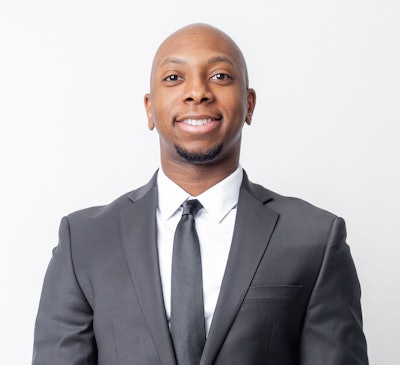The unprecedented coronavirus pandemic has created a whirlwind of unfortunate circumstances for many college students. An abrupt adjustment toward remote learning without having time to receive adequate online course training is among a plethora of issues that has caused stress, anxiety, and frustration for various students. More specifically, during the quarantine, student-athletes have experienced added pressure to remain eligible for athletic competition by maintaining National Collegiate Athletic Association (NCAA) academic requirements. Student-athletes who relied on face to face communication with university personnel are at an extreme disadvantage.
In many instances, Historically Black College and University (HBCU) student-athletes depend on university facilities to complete academic assignments, use athletic training equipment, eat healthy and consistent meals, engage in positive social interactions, and utilize campus housing as a way to avoid distractions that may exist at home. Furthermore, many coaches at HBCUs act as a father figure, mother figure, and/or counselor, and serve as a main source of student-athlete support. Additionally, teammates, athletic administrators, athletic facilities, academic tutors, and faculty play a major role in helping to support the holistic development of student-athletes. Therefore, how are HBCU student-athletes adapting to the absence of these resources? How do student-athletes temporarily adjust to life without sports? How are individuals managing their student-athlete experience based on their unique living circumstance? The future of the academic, social, and athletic experience of many HBCU student-athletes may depend on athletic departments and their ability to develop a specific protocol to best support student-athletes during a time of social isolation.
 Dr. Donovan Smalls II
Dr. Donovan Smalls IIOver the past few days, several student-athletes have reached out to me and have stated that they do not have access to Wi-Fi, laptops, and/or cellphone data to complete assignments. Additionally, numerous student-athletes articulated that they have frequent distractions at home, which has limited their ability to focus on academic tasks. Due to the current economic status of many Americans, some student-athletes said that they had to increase their work hours to help support their family. Traditionally, family priorities have been a primary concern for HBCU student-athletes. This concern has been heightened based on the unemployment predicament that the COVID-19 pandemic has created. Academics and maintaining athletic prowess have become secondary and tertiary responsibilities. But for many student-athletes, maintaining academic and athletic eligibility is a primary source of educational funding.
A few days ago, a student-athlete expressed his concern regarding remote learning by stating, “I’m not used to online courses. I really need your help because I don’t want to be ineligible. I’m trying to do my best.” I sensed the anxiety and uncertainty in his statement pertaining to his academic and athletic status. My concern is that many HBCU student-athletes have acquired increased levels of academic and athletic stress, as well as augmented family responsibilities without proper coping mechanisms, support, and strategic procedures to adjust to the unanticipated effects of the coronavirus quarantine.
To the contrary, student-athletes who have demonstrated an ability to uphold positive academic standing and maintain a consistent workout and nutrition regiment have direct access to technological resources, ideal living conditions, and a dependable support system. Two student-athletes said that they have not had any issues with completing assignments, eating healthy meals, and/or regularly exercising. Additionally, student-athletes who have had successful experiences transitioning to remote academic, social, and athletic experiences have created personal study time, individual workout routines, and mentioned that they have not been concerned with financially supporting their family.
The COVID-19 pandemic has highlighted the inequitable experiences that many HBCU student-athletes encounter. Although some HBCU student-athletes are able to maintain a quality of life that is conducive to academic, social, and athletic development, what can be done to assist student-athletes who are dealing with unfavorable circumstances? How can athletic departments help reduce stress and anxiety for student-athletes during a time of quarantine and social distancing? What methods should be implemented to help student-athletes feel more comfortable about maintaining academic eligibility and athletic proficiency if a pandemic were to occur in the future?
In order to fully support the academic, social, and athletic development of HBCU student-athletes during social isolation, athletic departments must create a specific protocol to address the unique experiences of HBCU student-athletes. A lack of technological resources, having to prioritize job duties over academic and athletic responsibilities, and coping with stress and anxiety due to the added pressure to provide for their family is a reality for many HBCU student-athletes.
Based on my experience, the following recommendations should be included in a protocol to address the unique experiences of HBCU student-athletes during social distancing: athletic coaches should conduct a team meeting to examine individual needs prior to a campus shutdown; an accountability partner should be established within each athletic program; weekly academic progress reports should be implemented; athletic training regiments and nutrition plans should be created; individual check-ins with student-athletes should occur weekly and/or as needed; and contact information regarding university counseling services should be consistently communicated.
Additional recommendations should be included in a protocol to help support the holistic development of student-athletes during the COVID-19 pandemic. However, the aforementioned suggestions will begin to establish a strategic plan to help improve the academic, social, and athletic student-athlete experience should a similar situation were to occur in the future.
Dr. Donovan Smalls II is an assistant professor of sport management at Virginia State University. You can follow him on Twitter @DonovanSmalls2















